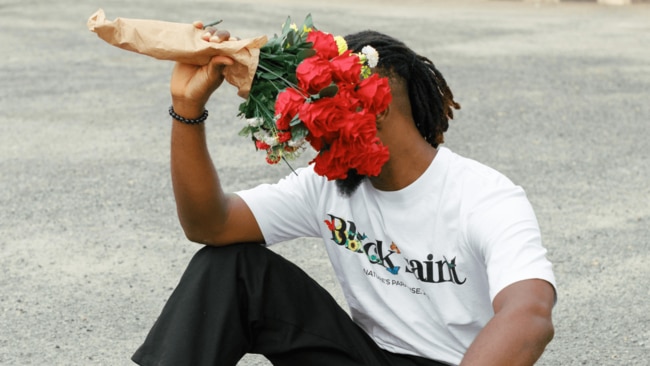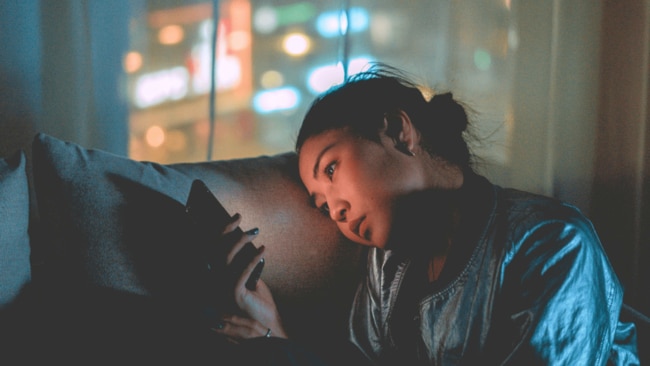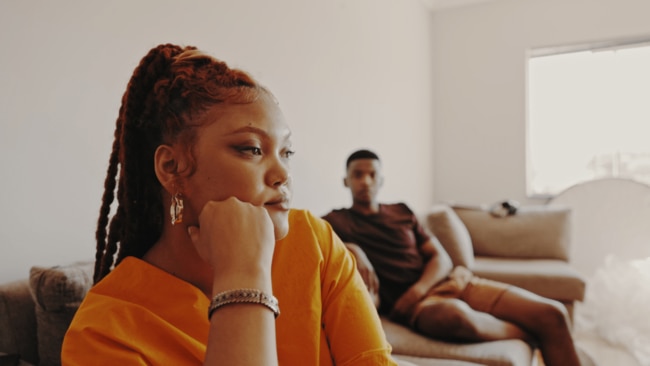You're not imagining it, Valentine's Day can be bad for your mental health
And no, it's not your fault
Lifestyle
Don't miss out on the headlines from Lifestyle. Followed categories will be added to My News.
If the festive romance and scent of mass-produced flowers on February 14th leave you feeling more blue than rosy, you’re not alone. Here’s why, according to an expert.
Valentine's Day, with its hearts, roses, and romantic gestures, is often hailed as a celebration of love and affection.
However, for many of us, the pressures and expectations associated with this day can contribute to stress, anxiety, frustration, disappointment and feelings of loneliness and even despair.
Valentine’s Day can be a day of pain, sadness and hurt as we watch couples display affection, treat each other and exchange gifts.
It can trigger us, impact our self-worth, make us feel more alone or like there is something wrong with us. This is especially common for those of us who have an addiction to being in love with being in love or avoidance in our intimate relationships and friendships.
The pressure of perfection
One of the primary reasons Valentine's Day can be detrimental to our mental health is the societal pressure to create a perfect romantic experience. From elaborate dates to expensive gifts, the day is often portrayed as a benchmark for measuring the depth of one's love.
The fear of falling short of these high expectations can lead to stress and anxiety, as individuals strive to meet an unrealistic standard set by society. Seeing social media posts of gigantic bunches of flowers, romantic picnics, expensive dinner dates and seemingly flawless relationships on platforms like Instagram and Facebook can trigger feelings of inadequacy and comparison.
This digital comparison game can exacerbate anxiety and self-doubt, leading individuals to question the validity of their own relationships or their worth if they are not part of a romantic celebration. It can also lead to disappointment and frustration, creating tension within normally healthy relationships and negatively affecting mental health.

Loneliness can be amplified
While Valentine's Day is marketed as a day for couples and secret lovers, it can be an isolating experience for those who are single, recently separated or divorced, or those grieving the loss of a loved one. The emphasis on romantic relationships during this time can intensify feelings of loneliness and inadequacy.
Single individuals may find themselves questioning their worth or feeling left out, which can contribute to a sense of alienation that can negatively impact their mental health. Loneliness, in and of itself, is an emotion we all feel. The gift of loneliness is that we learn to reach out to others, to not suffer in silence and to not ignore it.
The toxic level of loneliness is despair and isolation and it is in this space that we begin to turn it onto ourselves with a lot of negative self-talk such as ‘I’m not enough’; ‘I don’t deserve this’; ‘I’m unimportant’ and ‘I don’t matter’. It is imperative at this point that we share how we are feeling with a close confidant or a therapist to help us navigate this painful place we find ourselves in.

Love addiction and love avoidance
When speaking of love addiction, it is often helpful to think of this as being the pursuer in a relationship. Love Addiction or the Pursuer can be described as people who seem to choose people to love who cannot or will not “love them back”. This is a very painful and compulsive behaviour that affects the love addict as well as their partners and children.
These patterns are rooted in our dysfunctional childhood experiences and result in us, as adults being attracted to people who reinforce:
- our low self-esteem
- our needless and wantless view of life - we rarely functionally ask for our needs or wants to be fulfilled, generally because we don’t know what they are
- our perfectionism - we try to be as ‘they’ want us to be
People experiencing patterns of love addiction or avoidance can often find themselves drawn to those displaying the opposite pattern, leading to complex, toxic or dysfunctional relationships of codependency.
A love addict is someone dependent on, enmeshed with, and compulsively focused on taking care of another person. You may experience:
- Low self-esteem and self-worth
- A fear of abandonment or being alone - this is terrifying for a love addict
- Difficulty with internal and external boundaries
- Confusing love with neediness
- Patterns of staying in, and returning to painful or unhealthy relationships
- Emotional or sexual manipulation and dependency
- Romantic or sexual intrigue, obsession, and fantasies
- Assigning somewhat magical qualities to others in hopes of them fulfilling our fantasies

Love Avoidance can lead to you avoiding intimacy out of fear of being drained, engulfed or controlled. Many love avoidants were enmeshed or parentified as children and consequently, all intimate relationships can potentially be smothering. You might put up walls to prevent you from feeling overwhelmed, trapped or suffocated by a relationship. Many people who are love-avoidant, recognise characteristics of Love Addiction in their partner, or past partners. You might also:
- Feel compelled to care for needy or troubled people, seeing yourself as a ‘wonder woman’ or a ‘white knight’
- Avoid being emotionally vulnerable or fully honest in relationships
- Be overly critical of your partner, viewing them as weak or resenting them for being needy
- Communicate in either passive-aggressive or overtly aggressive ways
- Return to relationships out of guilt or fear of abandonment, or try to find a replacement for relationships once they end
It’s completely normal to experience a flurry of emotions on Valentine’s Day. Finding authentic ways to express and receive love, free from societal expectations, can lead to more fulfilling and healthy relationships. If you are single or struggling with a romantic relationship, take some time for self-care and seek support if needed.
Diane Young is a psychotherapist at South Pacific Private, one of Australia’s leading trauma, addiction and mental health treatment centres.
More Coverage
Originally published as You're not imagining it, Valentine's Day can be bad for your mental health




